One of the most enduring qualities about science fiction is how the genre allows us to imagine alternate futures, places where even the sky is no limit for our achievements. And in many cases, the genre has predicted, often with frightening accuracy, the technological advancements we once thought impossible. We’ve seen science marvel us with possibility: the facial transplants once used to frightening perfection in EYES WITHOUT A FACE (1960) are now a viable and sustainable option for burn victims. Likewise, we’ve also seen the darker side of technology. One look at the proliferation of CCTV cameras across the UK and suddenly George Orwell’s Big Brother doesn’t seem like fictional paranoia.
But what about when science fiction doesn’t get it right?
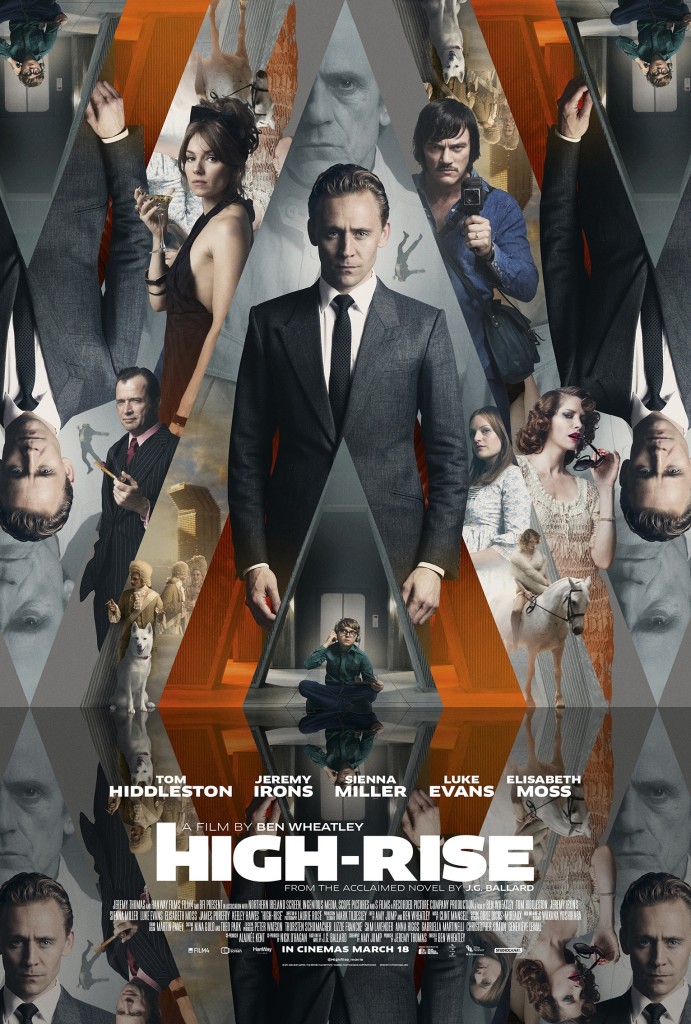
Ben Wheatley’s HIGH-RISE (2015) offers a slick sneak peek inside a future that never quite came to be. The film is based on the 1975 novel of the same name by author J.G. Ballard, which explores the effects that advanced technology and an altered social structure would have on humanity, both collectively and at individual levels. Through the eyes of Dr. Robert Laing (Tom Hiddleston), we’re given entry into the high rise, a new luxury apartment building that provides residents with enviable amenities, there’s a swimming pool, parties on every floor, a supermarket and even a school within the building. But with convenience comes isolation, as residents, including Laing, are drawn deeper into the safety of the building and begin to disconnect with the outside world.
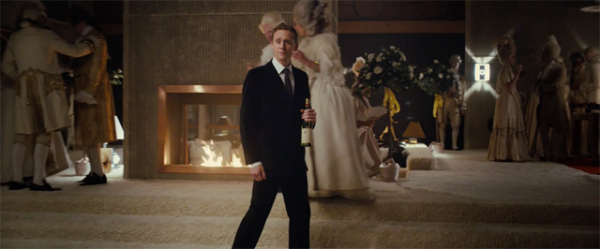
It is through parties that we’re given a clear picture of the social hierarchy in the high rise. Accepting the invitation of his alluring upstairs neighbor, Charlotte (Sienna Miller), Laing attends a party where he meets the building’s middle and working class residents. Here he chats with Helen (Elisabeth Moss), the heavily pregnant wife of documentary filmmaker Richard (Luke Evans), who explains to Laing that most of the families are relegated to the lower floors. There are constant complains regarding the children of the building, they are turned away from the pool for being too noisy, their garbage and dirty diapers clog up the building’s disposal system. At best, families are barely tolerated, they are dirty and loud reminders of poverty, preferably neither seen nor heard.
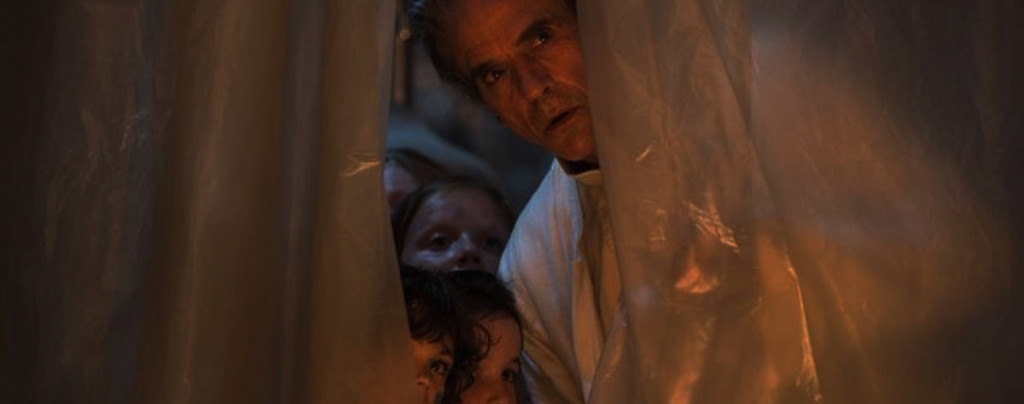
This is in direct contrast to Laing’s brief experience at a penthouse party attended by the building’s upper echelon. Laing, dressed in a sharp suit and invited by the building’s architect, Anthony Royal (Jeremy Irons), sticks out like a sore thumb amongst the snooty crowd, who are all decked out in lavish French aristocrat costumes. After being rudely mocked by some of the attendees, Laing is ousted from the party by one of Royal’s henchmen. Despite having the approval of Royal himself, this is a place where Laing does not belong.
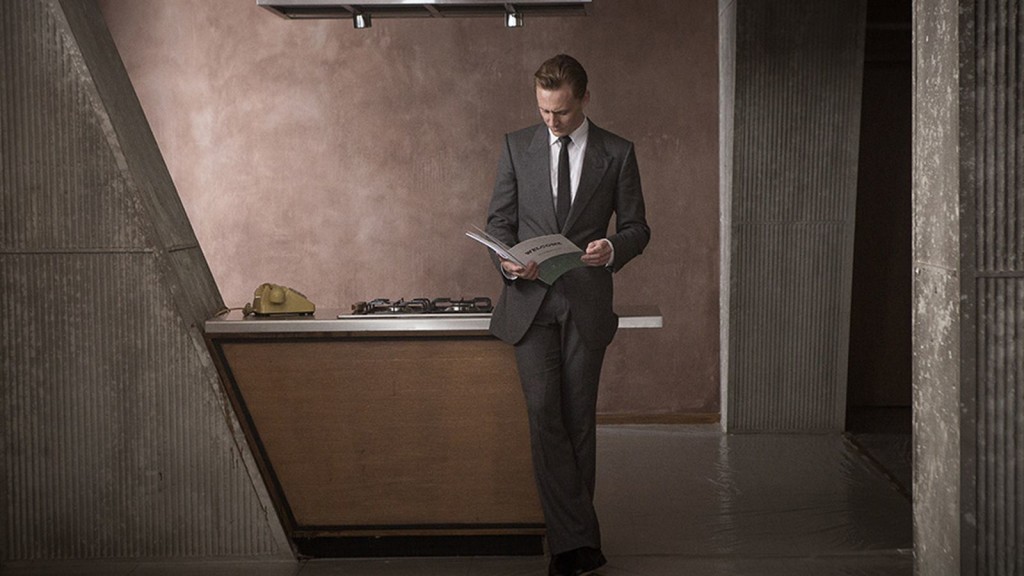
It isn’t long before persistent power outages, first affecting (and being blamed on) the lower levels of the building before spreading across all floors, as well as food shortages begin to affect everyone in strange ways. The residents, including Laing, begin withdrawing from the outside world and its responsibilities, with only one tenant still leaving the building to go to work. Instead, the residents began banding together into territorial groups, occupying their time with orgiastic parties as trash begins to cluster up the dilapidated hallways. When one of the residents leaps to his death from an upper floor balcony, Laing and his fellow partygoers seem completely unaffected, peering down at the bloody and broken body splayed across the shattered windscreen of a blue convertible with boredom. Even tragic death cannot stop their societal dénouement.
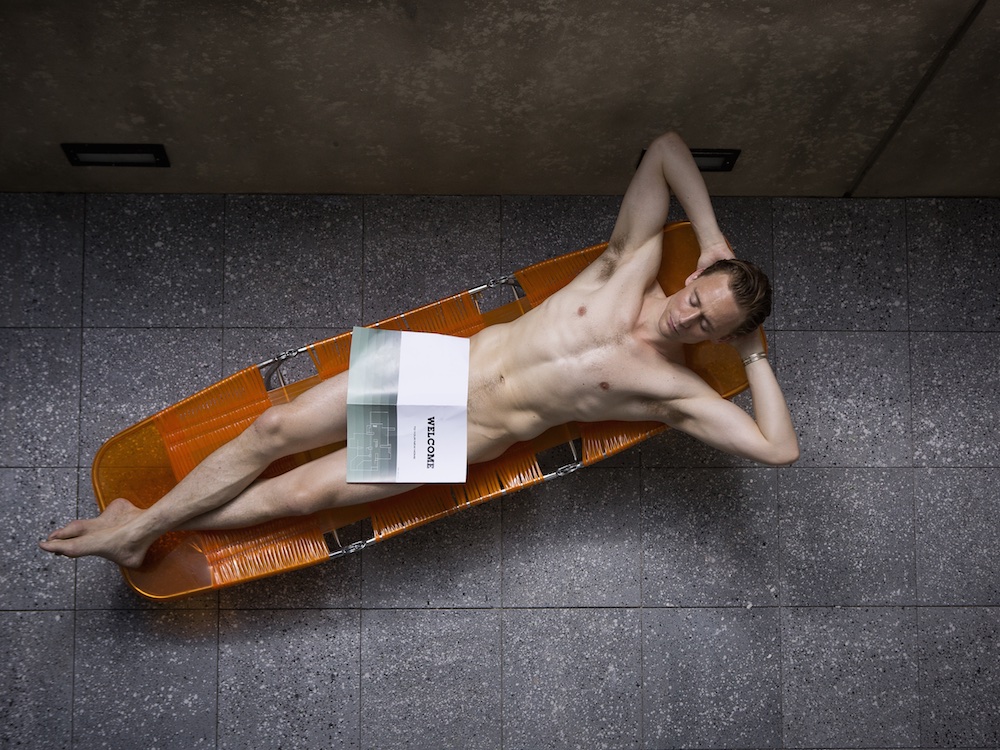
The comparison to SNOWPIERCER (2013) is a fair if somewhat lazy one, as both films explore social breakdowns in the face of isolation and severely imposed class designations. In SNOWPIERCER, Curtis (Chris Evans) and his motely crew barrel through the high-speed train, uncovering the rampant inequality that has long been hidden from them. But with the truth comes dangerous consequences, as there is also an element of danger awaiting them the further they progress. This is something that is decidedly lacking in HIGH-RISE, there are no shocks akin to SNOWPIERCER’s sinister schoolroom scene; here the violence isn’t senseless so much as it is displaced, making it feel lackluster.
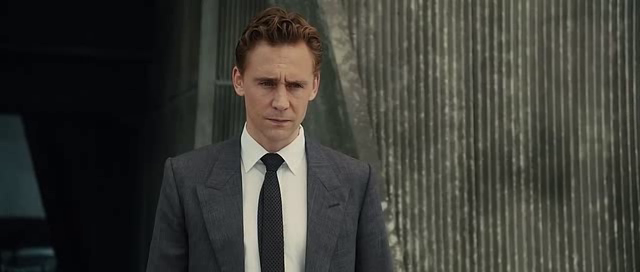
Still, one of the most interesting aspects of HIGH-RISE is how much it actually gets wrong about the future. The film, like the novel, is set in the 1970s, a time when luxury apartment buildings were an oddity. However, today the amenities offered in HIGH-RISE are fairly common in many apartment buildings, especially in big cities. There certainly is an argument that having a gym and a market in your building might encourage isolation, but it also hasn’t bred tribalism.
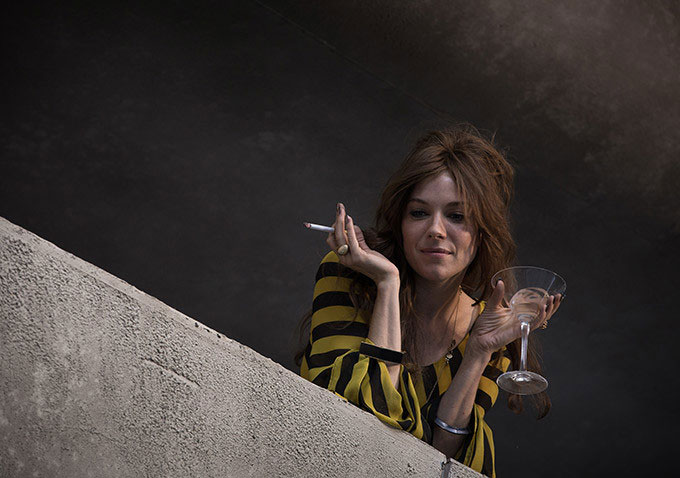
For me, the biggest missed opportunity comes with the lack of technology in the film. Today, an argument can be made that advances in technology, like smart phones, have had a mixed and often negative effect on society. Online bullying and revenge porn are just some of the nasty consequences to the proliferation of social media. This is something explored with great effect in the dark British sci-fi series Black Mirror, particularly in the premiere episode, in which an artist’s latest project goes viral with dark and disturbing consequences.
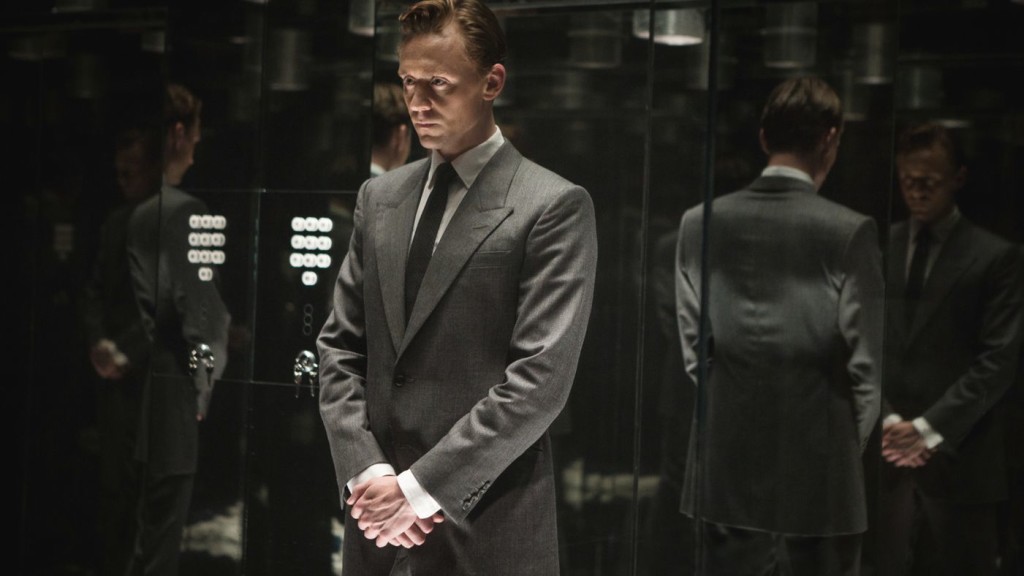
But an exploration of this is missing from HIGH-RISE, as the technology simply was not there. Instead, we’re given quick examples of the failure of technology, with Laing getting stuck in an elevator and with the subsequent power outages. Would we riot without Facebook and Netflix? Maybe, but HIGH-RISE, handcuffed by the time period, doesn’t offer us this suggestion. Instead we’re given a stylish, but very watchable, glimpse of what never really came to be.
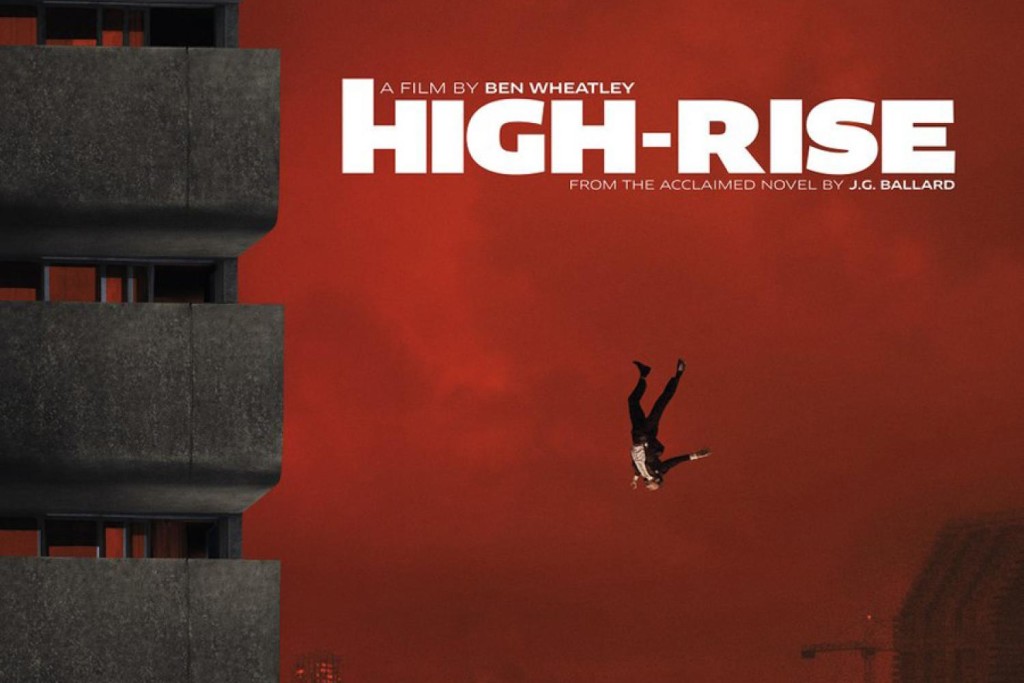
— JAMIE RIGHETTI.
Read more of Jamie at Daily Grindhouse!:
On SMALL TALK:
Tags: Amy Jump, Ben Wheatley, Benjamin Taylor, Clint Mansell, Elisabeth Moss, J.G. Ballard, James Purefoy, Jeremy Irons, Laurie Rose, Luke Evans, science fiction, Sienna Miller, Tom Hiddleston

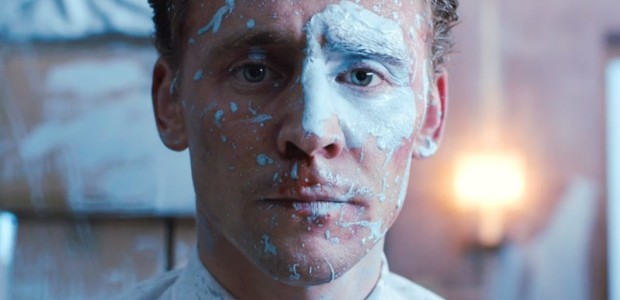
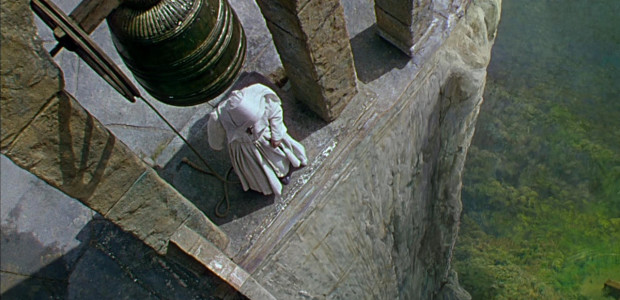
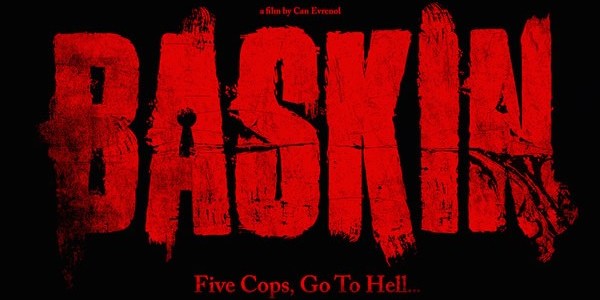


No Comments